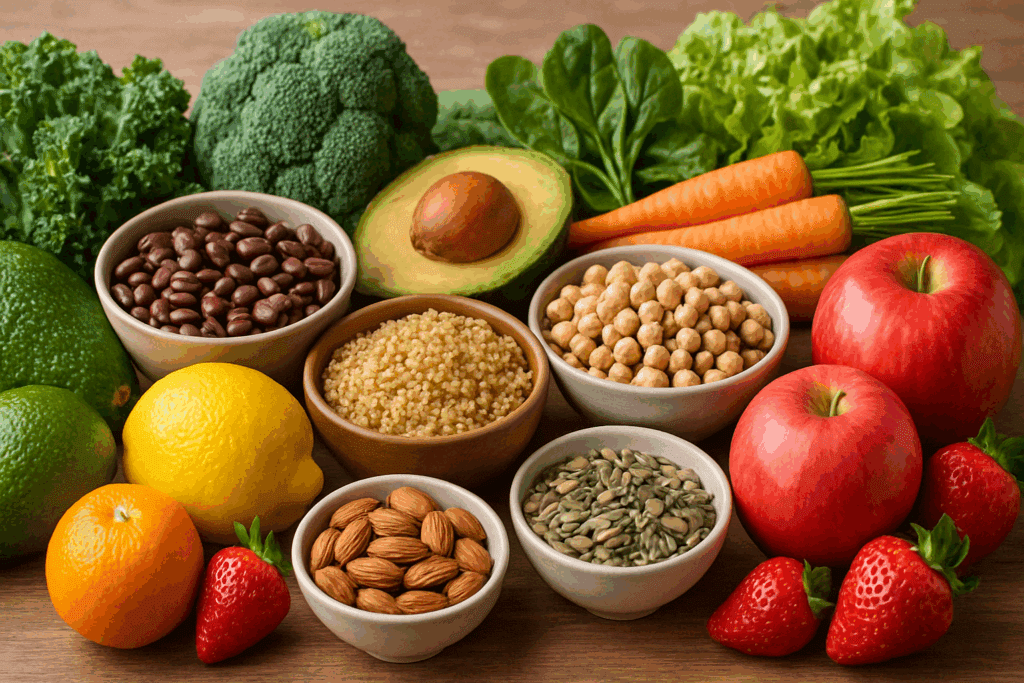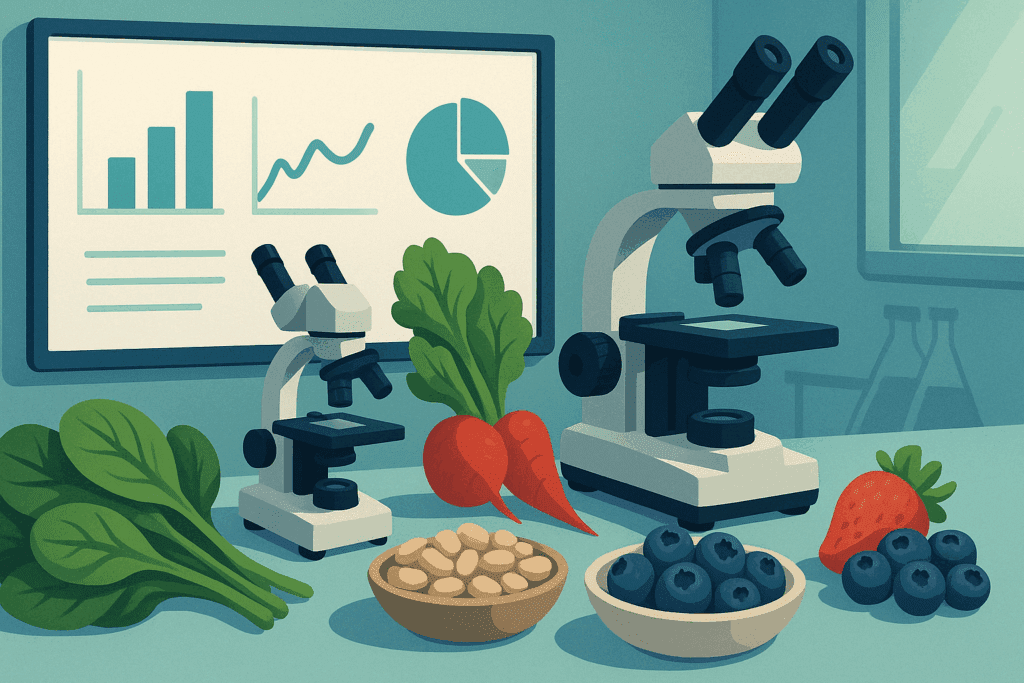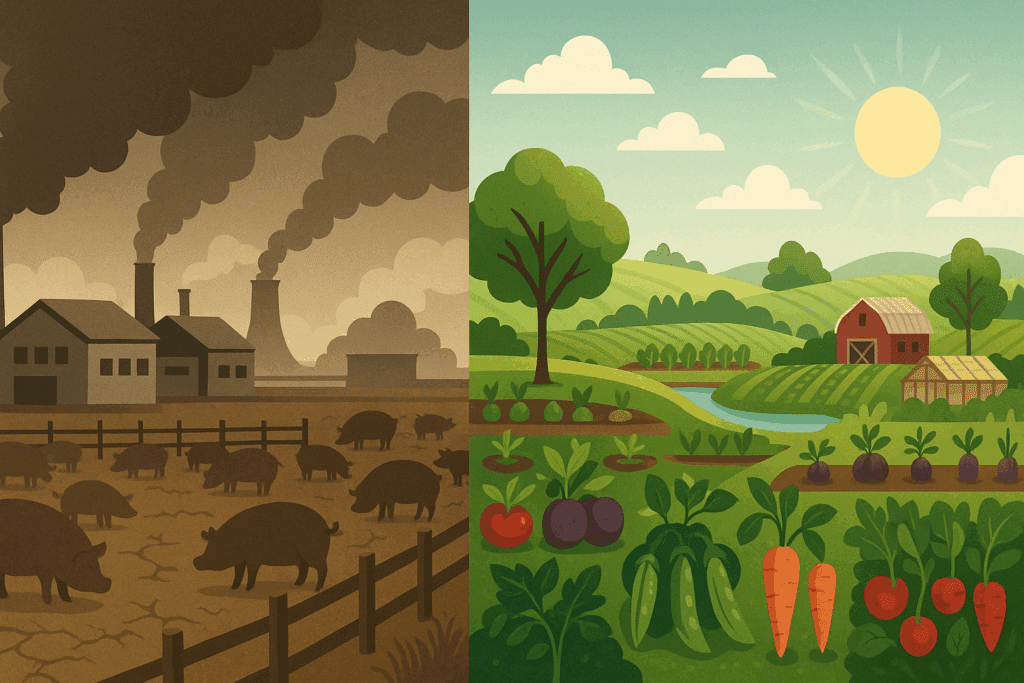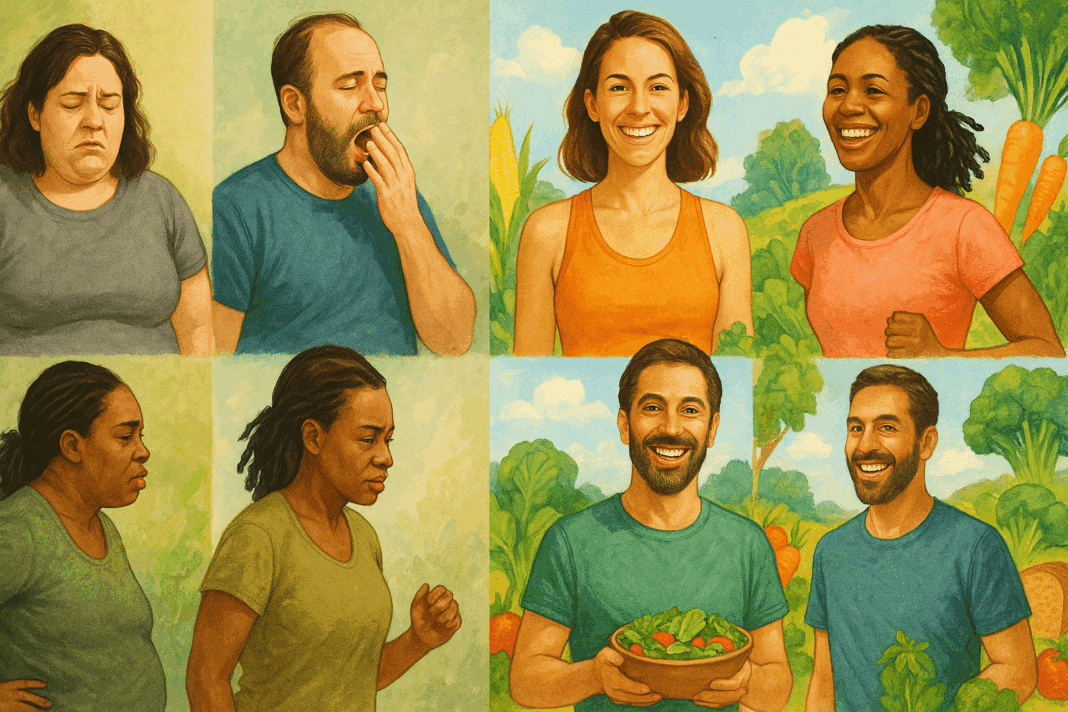The journey to better health is often marked by transformation—changes that not only alter the body but also reshape one’s understanding of food, vitality, and longevity. For many individuals, switching to a whole food plant-based diet is more than a dietary shift; it’s a turning point with profound physical and psychological effects. These changes are not only visible in the mirror but are increasingly backed by a growing body of scientific literature. In this article, we explore real-life stories of transformation underpinned by scientific evidence and nutritional insight. These powerful narratives demonstrate what a plant based before and after experience can truly entail, showing how dietary change can dramatically influence wellness outcomes.
You may also like: Plant Based Diet vs Standard American Diet: What the Latest Studies Reveal About Long-Term Health Outcomes
From shedding excess weight to reversing chronic illnesses and boosting energy, the before and after plant based diet stories shared here serve as compelling case studies. We contextualize these experiences within rigorous nutritional science to provide not only inspiration but evidence-based understanding for readers considering similar paths. Importantly, these transformations go beyond aesthetics. They reflect deeper health gains that challenge the notion that restrictive diets are the only way to thrive.
Understanding the Whole Food Plant-Based Diet
The whole food plant-based (WFPB) diet emphasizes minimally processed foods derived from plants. Unlike veganism, which focuses on excluding all animal products, WFPB prioritizes food quality and health impact. Staples include fruits, vegetables, legumes, whole grains, nuts, and seeds, while minimizing or avoiding oils, added sugars, and refined grains. The emphasis lies on foods in their most natural state, consumed for their nutrient density rather than simply their origin.
The difference between this approach and popular low-carb models such as the ketogenic diet vs low carb alternatives is substantial. While keto restricts carbohydrates in favor of high-fat intake, WFPB diets embrace complex carbs for their fiber and micronutrient content. This distinction is crucial, especially when evaluating sustainability and long-term health outcomes. Studies have increasingly questioned whether a keto diet is a good diet when applied beyond the short term, particularly for individuals with cardiovascular or renal concerns.
Is a keto diet sustainable? This remains a hotly debated topic in nutrition circles. Emerging research suggests that while ketosis may offer rapid initial weight loss, many struggle to maintain such restrictive eating patterns over time. In contrast, whole food plant-based approaches offer more flexibility and greater alignment with global dietary guidelines for disease prevention and longevity.

Real People, Real Results: Whole Food Plant Based Diet Before and After Stories
Transformative stories are often the most compelling evidence of a diet’s effectiveness. Take Lisa, a 42-year-old teacher who spent years battling obesity and prediabetes. Her lifestyle had become increasingly sedentary, and repeated attempts with low carb diet keto diet variations left her fatigued and frustrated. Upon transitioning to a WFPB lifestyle, Lisa experienced sustained energy levels, normalized blood sugar, and ultimately lost over 60 pounds. Her story reflects a classic example of vegan weight loss before and after, grounded in whole, nutrient-dense foods.
Equally compelling is Mark, a former amateur bodybuilder who embraced a high-protein, low-carb regimen for years. Though lean, he suffered from elevated LDL cholesterol and persistent gastrointestinal issues. After researching whether keto is a low carb diet and comparing the keto diet vs low carb diet models to a plant-based approach, he made the switch. Within six months, his LDL levels dropped, digestive function improved, and his athletic performance showed marked gains. His before and after plant based diet results challenge common misconceptions about muscle retention and plant-based eating.
For many, the vegetarian diet before and after experience includes not just improved biomarkers but also mental clarity and emotional well-being. Emily, a 29-year-old graduate student, suffered from anxiety and fatigue. Despite trying several dietary fads, nothing seemed to help until she adopted a predominantly plant-based regimen. Within weeks, she reported improved mood, better sleep, and enhanced cognitive function. Her case exemplifies the lesser-discussed benefits of WFPB eating: mental and emotional wellness.

Scientific Evidence Supporting Whole Food Plant-Based Transformations
Numerous peer-reviewed studies affirm the health benefits of WFPB diets. The Adventist Health Study, which tracked over 96,000 participants, revealed lower incidences of hypertension, diabetes, and heart disease among those following vegetarian or vegan diets compared to omnivores. Furthermore, randomized clinical trials published in journals like The Lancet and JAMA Internal Medicine support the efficacy of plant-based diets in managing obesity, type 2 diabetes, and coronary artery disease.
When it comes to comparing is keto no carbs to a plant-based model, the nutritional consensus underscores the value of balanced, fiber-rich diets over high-fat, low-carb extremes. While keto followers may drastically reduce carbohydrate intake, research suggests that eliminating entire macronutrient groups is often unsustainable and potentially harmful long-term. Conversely, plant-based diets offer protective effects without such dietary exclusions.
In terms of weight management, meta-analyses confirm that individuals on whole food plant-based diets consistently experience healthier BMI ranges. These findings reinforce the narrative seen in countless vegetarian weight loss before and after accounts. Weight loss is not only more achievable but also more maintainable when rooted in abundant, satisfying foods that nourish rather than deprive.
Debunking the Myths: Is Keto a Low Carb Diet That Works Long-Term?
Many health enthusiasts are drawn to keto’s promise of rapid weight loss. But is keto a good diet for long-term health? The answer depends largely on context. Short-term studies indicate some metabolic benefits, including improved insulin sensitivity and triglyceride levels. However, these gains often plateau, and adherence challenges frequently lead to weight regain. Moreover, potential side effects such as constipation, nutrient deficiencies, and cardiovascular strain prompt further concern.
A comparison of ketogenic diet vs low carb and WFPB models shows clear distinctions. While low carb variations allow for moderate carbohydrate intake, keto demands strict limits that can impair dietary diversity. Nutritional adequacy becomes a pressing issue, particularly when fiber, essential vitamins, and phytonutrients are restricted. By contrast, plant-based diets naturally incorporate these elements, supporting both gut health and systemic function.
Furthermore, the question of is a keto diet sustainable has practical implications. For populations with cultural or socioeconomic barriers to maintaining high-fat diets, sustainability may be low. In contrast, plant-based eating is inherently more adaptable, especially in regions where fruits, vegetables, and legumes are dietary staples.

Vegetarian Weight Loss Before and After: What the Data Reveals
Weight loss remains a primary motivator for dietary change, and plant-based approaches offer compelling outcomes in this domain. A study published in Nutrition & Diabetes found that overweight individuals on vegetarian diets lost significantly more weight than those on omnivorous plans, even when caloric intake was similar. These results align with anecdotal reports of vegetarian weight loss before and after, where individuals describe not just slimmer bodies but improved metabolic profiles.
Importantly, the composition of weight loss on plant-based diets differs from calorie-restrictive methods. Muscle mass is preserved or even enhanced when adequate protein sources like legumes and tofu are included. Additionally, the high fiber content aids satiety, reducing the likelihood of overeating—a key reason why vegetarian diet before and after outcomes are often so sustainable.
The transition also appears to influence gut microbiota in beneficial ways. Diverse, fiber-rich plant foods support a healthy balance of gut bacteria, which can influence metabolism and fat storage. This microbial enhancement may partly explain the long-term success seen in vegan weight loss before and after stories. The internal changes are as vital as the external transformations.
Is Keto a Good Diet for Everyone? Exploring the Risks and Limitations
Though keto remains popular in fitness and weight-loss circles, it’s not universally beneficial. Health professionals caution against its use for individuals with kidney issues, high cholesterol, or a history of eating disorders. The restrictive nature of keto can exacerbate disordered eating patterns and limit essential nutrient intake.
Clinical trials evaluating is keto a good diet have yielded mixed results. While some participants see improved blood sugar control, others develop elevated LDL cholesterol or liver enzyme irregularities. These disparities highlight the need for personalized approaches rather than one-size-fits-all solutions. In this regard, whole food plant-based diets provide a more inclusive model, accommodating various health statuses and dietary preferences.
Another concern relates to the diet’s low fiber content. Since fiber is critical for digestive health, immunity, and chronic disease prevention, its absence in keto regimens can be detrimental. Whole food plant-based diets, by contrast, exceed recommended fiber intake without supplementation, supporting the notion that long-term wellness requires more than just macronutrient manipulation.
Why the Whole Food Plant-Based Diet Excels in Sustainability
From an environmental and practical standpoint, plant-based eating offers notable advantages. A 2020 review in Nature Sustainability concluded that plant-forward diets could reduce greenhouse gas emissions, land use, and water consumption by significant margins. This ecological impact aligns with increasing consumer demand for sustainable solutions to food production and climate change.
Economically, WFPB diets can also be more accessible. Staples like beans, rice, oats, and frozen vegetables are cost-effective and widely available, making this lifestyle feasible for a broad demographic. In contrast, keto diets often rely on animal products, specialty oils, and processed snack alternatives that may not be financially viable for all.
Additionally, the social adaptability of plant-based diets supports sustained adherence. Individuals can participate in communal meals, cultural traditions, and varied cuisines without compromising health goals. This contrasts with the rigid restrictions of is keto no carbs frameworks, which often isolate followers from shared dining experiences.
How to Start Your Own Whole Food Plant-Based Transformation
For those inspired by the many vegetarian before and after stories, transitioning to a WFPB diet can be a powerful step toward wellness. The key lies in gradual changes and education. Begin by increasing your intake of vegetables and legumes while reducing reliance on processed foods. Exploring new recipes, meal prepping, and reading labels can build confidence and culinary skill.
It’s also beneficial to track changes in how you feel, rather than focusing solely on weight. Many report improved sleep, mood, digestion, and energy levels long before physical transformation becomes evident. These internal cues can serve as motivation to stay the course.
When comparing keto diet vs low carb diet options to plant-based alternatives, consider sustainability and alignment with personal values. While some may benefit temporarily from lower-carb models, the longevity and holistic benefits of WFPB eating offer a more comprehensive health strategy. The best diet is not just the one that works in the short term—but one that supports lifelong vitality.

Frequently Asked Questions: Whole Food Plant-Based Diet Transformations
1. What are some unexpected benefits people experience in their plant based before and after journeys?
Many individuals who commit to a whole food plant-based lifestyle report changes that go far beyond the physical. In addition to weight loss and improved lab markers, people often describe enhanced sleep quality, better skin health, and heightened mental clarity. These benefits are rarely the primary motivation but emerge as pleasant surprises. A common thread in before and after plant based diet transformations is a deeper connection to food and a more intuitive eating pattern. This renewed relationship with nourishment often leads to long-term adherence and emotional well-being, distinguishing these stories from temporary or superficial dietary overhauls.
2. How do vegan diet before and after transformations impact hormonal balance, particularly in women?
Vegan before and after results frequently include anecdotal reports of improved hormonal balance, especially in women struggling with conditions like PCOS or irregular cycles. A plant-based diet rich in phytoestrogens, fiber, and antioxidants may help modulate hormone levels and reduce inflammation. While more clinical studies are needed, current research supports the idea that fiber-rich diets aid in the elimination of excess estrogen and can contribute to hormonal regularity. Moreover, avoiding processed animal products has been associated with reduced exposure to endocrine-disrupting compounds. These factors together may help explain some of the health improvements shared in whole food plant based diet before and after testimonials by female participants.
3. What psychological changes accompany vegan weight loss before and after transformations?
Beyond the scale, many individuals notice profound psychological shifts as they progress through their vegan weight loss before and after journeys. These include heightened self-esteem, reduced anxiety, and a more mindful relationship with food. There’s a feedback loop that occurs: as people start to feel better physically, their mental resilience and motivation often increase. Some even report decreased symptoms of depression, which researchers partly attribute to higher intakes of antioxidants and complex carbohydrates that support neurotransmitter function. Such mental health benefits are an often-underappreciated but significant part of a holistic transformation.
4. How do social dynamics change when someone undergoes a vegetarian before and after transformation?
Changing one’s diet can ripple into every social context, especially when it becomes a defining part of daily life. Many people navigating a vegetarian before and after shift encounter both support and resistance from friends and family. While initial skepticism is common, noticeable health improvements often convert doubters into curious observers. Over time, individuals frequently report forming new communities centered around shared values in health, sustainability, and compassion. These social reinforcements can help maintain long-term dietary changes and foster a more inclusive perspective on plant-based living.
5. Can a vegetarian diet before and after transformation improve athletic performance?
Absolutely. Athletes who transition to a plant-based diet often report better endurance, quicker recovery times, and reduced inflammation. A well-planned vegetarian diet before and after transformation can provide ample protein from legumes, tofu, and whole grains, alongside the micronutrients needed for optimal muscle repair. High levels of dietary antioxidants can also mitigate oxidative stress, which is crucial for intense physical activity. Case studies from endurance athletes and strength trainers alike show that performance can be maintained—or even enhanced—through strategic plant-based nutrition.
6. How do long-term habits form after a whole food plant based diet before and after transformation?
The transition often begins with short-term motivation, such as weight loss or managing a chronic condition, but it evolves into a sustainable lifestyle through habit stacking and education. After experiencing the benefits of a whole food plant based diet before and after period of transformation, individuals tend to seek further knowledge, experiment with cooking, and identify personal health metrics to track. These habits become self-reinforcing as positive health outcomes accumulate. Furthermore, people often internalize their new identity as someone who values plant-based wellness, making the return to previous habits less likely.
7. What role does cultural identity play in plant based before and after transformations?
Food is deeply tied to culture, and modifying one’s diet can feel like a loss of tradition. However, many people undergoing plant based before and after journeys find ways to adapt their cultural dishes using plant-based ingredients. This reimagining of traditional meals can deepen cultural appreciation and foster innovation in the kitchen. Some individuals even become advocates within their communities, sharing recipes and strategies that honor heritage while promoting health. Thus, rather than severing ties with one’s roots, a plant-based transformation can actually enhance cultural engagement.
8. How do children’s health outcomes change when families adopt a plant-based lifestyle together?
Children raised in households that embrace plant-based diets often enjoy balanced growth, strong immunity, and better eating habits into adulthood. Parents who share their vegetarian weight loss before and after experiences frequently inspire their kids through example, not imposition. Pediatric studies suggest that with proper planning, plant-based diets can meet all the nutritional needs of growing children. Moreover, early exposure to a variety of whole foods helps develop broad taste preferences and reduces reliance on processed snacks. A family-wide transition can reinforce mutual accountability and turn mealtime into a shared health-positive experience.
9. How can one measure success in a vegan before and after transformation beyond weight loss?
While weight loss can be a motivating factor, many individuals find deeper, more meaningful benchmarks of progress. These might include reductions in blood pressure or cholesterol, better digestive health, or increased daily energy. Some track success by observing improved skin clarity, fewer mood swings, or greater productivity at work. Vegan before and after journeys are often most rewarding when framed around functional health and lifestyle satisfaction rather than appearance alone. The key is identifying which outcomes align with personal values and long-term goals.
10. Are there common setbacks during a vegetarian weight loss before and after transformation, and how can they be overcome?
Yes, plateaus, social pressures, and nutrient imbalances can arise along the way. One of the most common missteps is overly restricting calories or failing to consume enough protein-rich plant foods, which can stall progress and lead to fatigue. Planning meals in advance and consulting a registered dietitian can help navigate these hurdles. Emotional eating and cravings may also emerge, particularly during stressful periods—but mindfulness practices and community support can counteract these tendencies. Ultimately, setbacks are part of the process, and those who view their vegetarian weight loss before and after journey as a long-term evolution tend to bounce back stronger and more informed.

Reflecting on the Power of Real Transformations and Scientific Support
The stories of those who have embraced whole food plant-based living serve as a testament to its profound and diverse benefits. From vegan diet before and after journeys that reverse chronic illness to vegetarian before and after narratives that highlight emotional healing, the evidence is clear: food is powerful medicine. These transformations are no longer anecdotal—they are validated by science and echoed in peer-reviewed research across disciplines.
By analyzing ketogenic diet vs low carb strategies alongside plant-based frameworks, it becomes apparent that is a keto diet sustainable is a question many struggle to answer affirmatively. In contrast, WFPB approaches continue to prove their resilience across age groups, ethnicities, and lifestyles. They offer not just fleeting results but enduring wellness.
For anyone wondering whether plant-based diets can truly make a difference, the combined weight of personal testimony and scientific rigor provides a resounding yes. As you consider your own dietary path, let these before and after plant based diet stories inspire a future rooted in nourishment, balance, and sustainable change.
Was this article helpful? Don’t let it stop with you. Share it right now with someone who needs to see it—whether it’s a friend, a colleague, or your whole network. And if staying ahead on this topic matters to you, subscribe to this publication for the most up-to-date information. You’ll get the latest insights delivered straight to you—no searching, no missing out.
Further Reading:
What is a plant-based diet and why should you try it?
Plant-based diets and long-term health: findings from the EPIC-Oxford study
Disclaimer
The information contained in this article is provided for general informational purposes only and is not intended to serve as medical, legal, or professional advice. While NewsHealthWatch strives to present accurate, up-to-date, and reliable content, no warranty or guarantee, expressed or implied, is made regarding the completeness, accuracy, or adequacy of the information provided. Readers are strongly advised to seek the guidance of a qualified healthcare provider or other relevant professionals before acting on any information contained in this article. NewsHealthWatch, its authors, editors, and contributors expressly disclaim any liability for any damages, losses, or consequences arising directly or indirectly from the use, interpretation, or reliance on any information presented herein. The views and opinions expressed in this article are those of the author(s) and do not necessarily reflect the official policies or positions of NewsHealthWatch.

